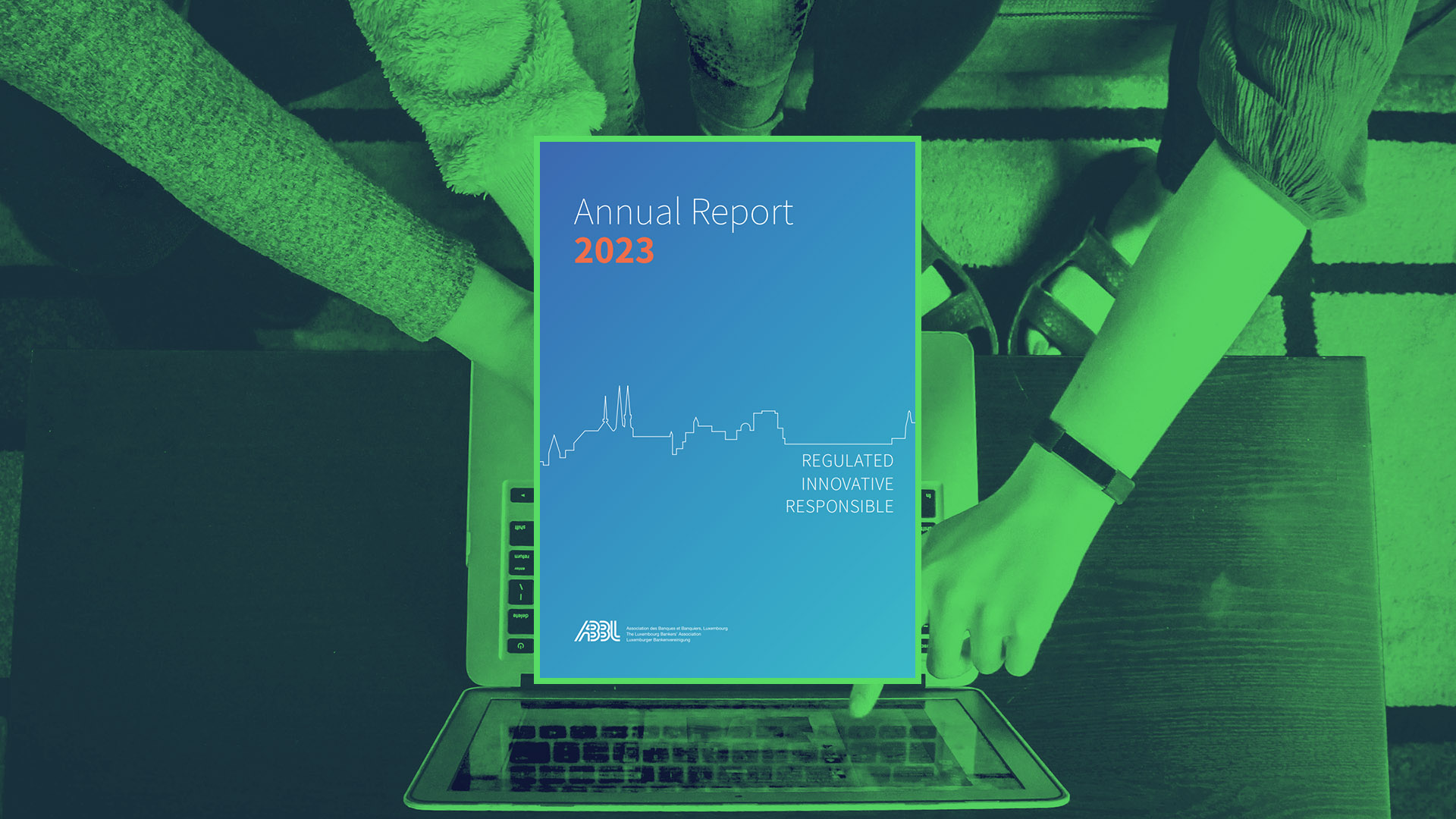(Instant) Payments & FiDA highlighted in the ABBL Annual Report

The ABBL recently released its 2023 Annual Report which gives an overview of the Luxembourgish banking sector and how it is evolving. The Report also focuses on payments and mentions Instant Payments, as well as the upcoming PSD3/PSR regulations... More generally, the report touches on the different innovations that are transforming the financial services industry, one of them being FiDA.
Luxembourg, a key player in the payments’ European landscape
The payments landscape in Luxembourg is vibrant and multifaceted, encompassing various actors such as banks, payment institutions, electronic money institutions, as well as other financial services professionals engaged in payment activities.
Here are the key facts and figures:
- In the first half of 2023, an overwhelming 91% of all non-cash payment transactions in Luxembourg were executed through electronic money payment methods.
- The country also accounts for 63% of all e-money payment transactions executed within the euro area (2,751Mio e-money payments in Luxembourg, compared to 4,399Mio in the entire euro area). As explained in the Report,” this large number of cross-border electronic payments is affected by the presence of dominant Luxembourg-based institutions” and it highlights the importance of Luxembourg in the circulation of e-money within the euro area.
- Luxembourg’s retail transaction data from the past three years underscores the enduring popularity of bank transfers, many of which are processed through SEPA. In 2023, the number of customer transfers increased by 5% compared to 2022
- Instant payments saw a remarkable 24% rise during the same period.
- Retail payments via credit and debit cards also continued to grow, comprising approximately 78% of all retail payments in 2023.
Instant Payments the new normal
”The payments landscape in Luxembourg is at a pivotal juncture, offering users an expanding array of channels and currencies, with data flowing more freely than ever, and infrastructure layers growing increasingly sophisticated”, as stated in the ABBL’s 2023 Annual Report. This evolution is exemplified by the rise of instant payments, which have revolutionized both domestic and cross-border transactions. Claire Alexandre (Chair of ABBL’s Payments Cluster and Head of Government Relations, EMEA – PayPal (Europe)) highlights: “Instant Payments are the new normal, yet many challenges are still ahead”.
Introduced in the EU in 2017 through the European Payments Council’s instant payment scheme, instant payments facilitate near-instantaneous domestic and cross-border transactions in euros among participating payment service providers (PSPs) within SEPA. Despite their advantages, such as enhanced consumer convenience and cost-effectiveness for merchants, instant payments currently represent a small fraction of euro area transfers.
To bridge this current gap between reality and the ambition of the European Commission, the Instant Payments Regulation was proposed in October 2022, and aimed to standardize instant euro payments. Adopted on April 8th, 2024, this regulation mandates that all PSPs receive and offer instant payment services, while adding more security notably with the Verification of Payee obligation (an important topic for LUXHUB which released an efficient IBAN-name check solution, “Payee Verification Platform”).
As stated in the report, the ABBL supports this initiative, yet “it has raised concerns about the potential burden on smaller organizations. Furthermore, ABBL has emphasized the importance of addressing potential risks related to money laundering and terrorism financing”.
The ABBL’s Instant Payments Task Force is actively assisting approximately 40 member companies in adapting to the new measures, tackling challenges such as bulk order management, fraud detection, and the development of databases for payee recognition.
Paving the way for Open Finance
As highlighted by Ananda Kautz (Head of Innovation, Payments and Sustainability and Member of the Management Board, ABBL), “2023 has been pivotal with the publication of key regulatory proposals including the Financial Information Data Access (FiDA) focusing on enhanced data access and processing, promoting inclusivity and innovation within the financial sector, encouraging competition, and paving the way for innovative data solutions”.
In fact, on June 28, 2023, the EU Commission published the Regulation Proposal for Financial Data Access (FIDA). The ABBL has actively engaged with the FiDA proposal, responding to the European Commission’s consultation and collaborating with the Ministry of Finance and contributing to the European Banking Federation (EBF) position paper.
The ABBL highlighted several market concerns, including “the lack of clear definitions on important aspects and distinctions between different data categories, necessary exclusion of certain types of products and services from the scope, along with tight timeliness for implementation”.
With regards to the Financial Data Sharing Schemes (which have actually been renamed “Financial Data Access Schemes”), the ABBL also stressed the need for “a strong a strong foundation for the compensation principle and a clear and fair liability regime with a dispute resolution approach”.
The professional association has also emphasized the importance of a harmonized user experience through standardized permission dashboards and clear liability regimes with dispute resolution mechanisms.
Also, the ABBL underlined a lack of clear definition of FISPs (Financial Information Services Providers) and strong authorization requirements.
Security, fraud prevention, and the interplay with other relevant regulations, such as the newly proposed Payment Package, GDPR, DORA, and the Data Act, remain key concerns.
In the context of the evolution of Open Banking, and with the upcoming FiDA, the LUXHUB Open Finance Platform acts as an API distribution channel to facilitate “exchanges” between API producers and consumers.